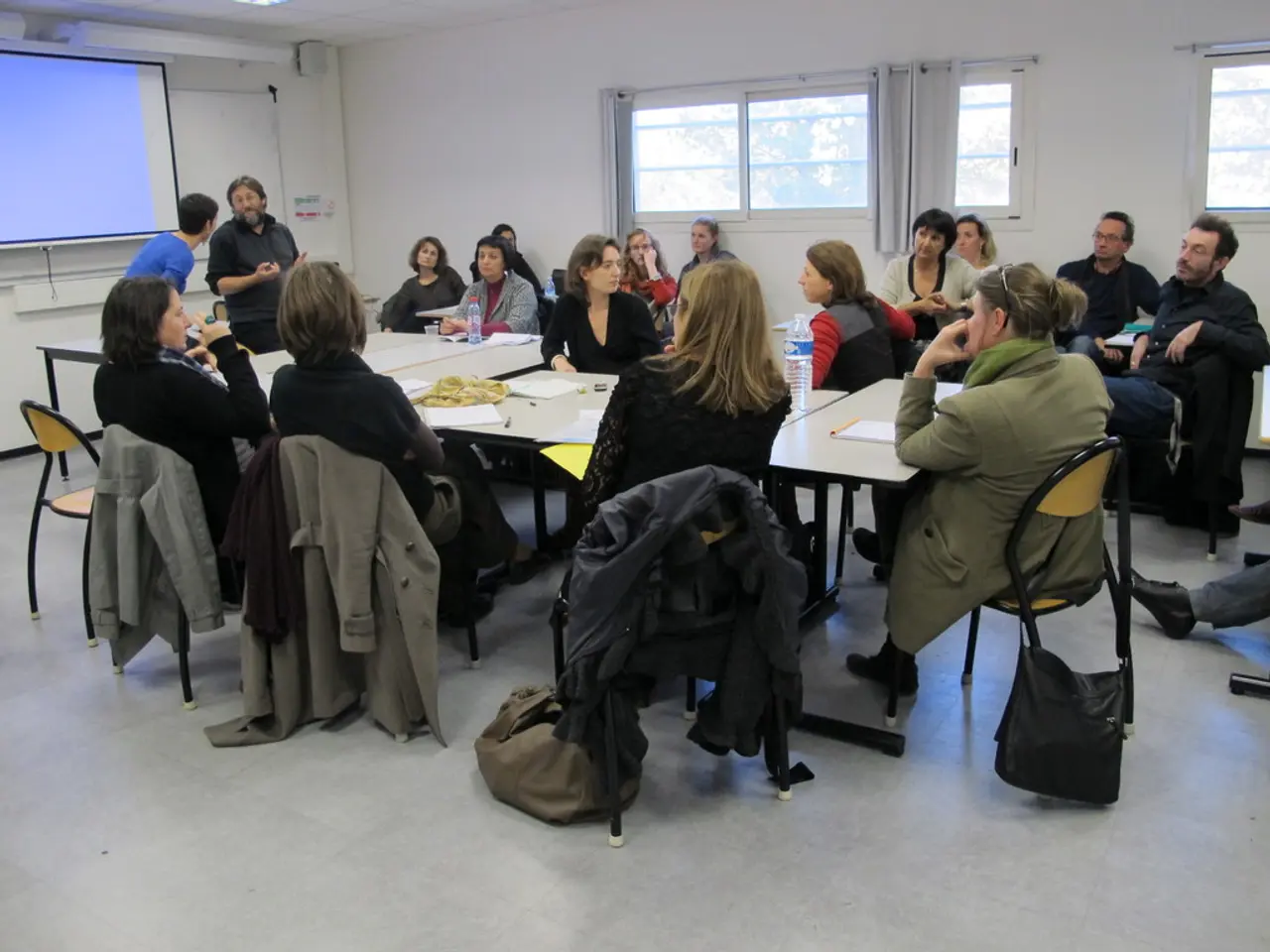Zelensky States: Trump and Putin Lack Decision-Making Authority Without Ukraine's Input
The ongoing Russia-Ukraine conflict continues to be a significant concern for Ukraine's allies and leadership. A potential solution to this long-standing issue is on the horizon, as a three-way meeting involving Donald Trump, Vladimir Putin, and Volodymyr Zelenskyy has been proposed to end the war.
The proposed meetings, which could take the form of a trilateral summit or a bilateral meeting between Putin and Zelenskyy, are aimed at negotiating a peace deal, rather than just a ceasefire. The timeline for these discussions is focused on hosting a bilateral meeting between Putin and Zelenskyy by the end of August 2025.
On August 16, 2025, Donald Trump met with Putin in Alaska, marking a significant step towards these discussions. Trump is also preparing to meet Zelenskyy and European leaders at the White House on August 18. The White House aims for a Putin-Zelenskyy meeting very soon, ideally before the end of August 2025.
The objectives of these meetings are threefold: to provide security guarantees to Ukraine with European partners’ involvement, to achieve mutual concessions on contentious issues such as territorial control of the Donbas region, and to leverage Trump’s unique position as a mediator who can bring Putin to the negotiating table.
However, several challenges remain. Moscow is skeptical of the summit, favouring lower-level negotiations before any leaders’ talks. Putin has historically refused direct talks with Zelenskyy and has sought regime change in Kyiv, complicating trust. Zelenskyy insists that Ukraine must decide its own territorial fate and opposes territorial concessions.
Despite these challenges, there is a shared desire among all parties to end the bloodshed in Ukraine as soon as possible. Zelensky has expressed confidence that there will be a three-way meeting between Trump, Putin, and himself to end the war in Ukraine. However, he has also stated that no decisions about Ukraine can be made without Ukraine's involvement.
Ukraine has been receiving Western support in its defense against Russian invasion for over three years. The meeting between Trump and Putin is considered important for their bilateral relations, but the location of the potential three-way meeting between Zelensky, Trump, and Putin has not been disclosed.
Trump has stated that he does not consider it his responsibility to sign any agreements regarding the conflict. Despite this, he has expressed his desire to end the war in Ukraine as soon as possible. The prospects for a swift peace deal appear slim due to deep divisions over security and territorial issues.
In summary, while Trump’s recent diplomatic efforts have generated momentum towards talks, the path to peace remains difficult given long-standing mistrust and disagreement on critical issues. The diplomatic efforts now hinge on a bilateral Putin-Zelenskyy summit, with Trump advocating that as the "next phase" towards ending the war. The fear among European allies and Ukraine's leadership is that Putin and Trump could make decisions over the country attacked by Russia without Ukraine's involvement.
The diplomatic efforts, led by Donald Trump, are focused on hosting a bilateral meeting between Putin and Zelenskyy to negotiate a peace deal in Ukraine, aiming for a potential three-way meeting to end the war. However, Moscow's sensitivity towards high-level talks and historical mistrust between Putin and Zelenskyy present significant challenges in achieving a swift peace deal.





